Why do cyclists say chapeau to grimpeurs in the peloton? - the French terms you'll hear during the Tour de France
The cycling community uses a lot of French words year round, but come Tour de France season it really ramps up
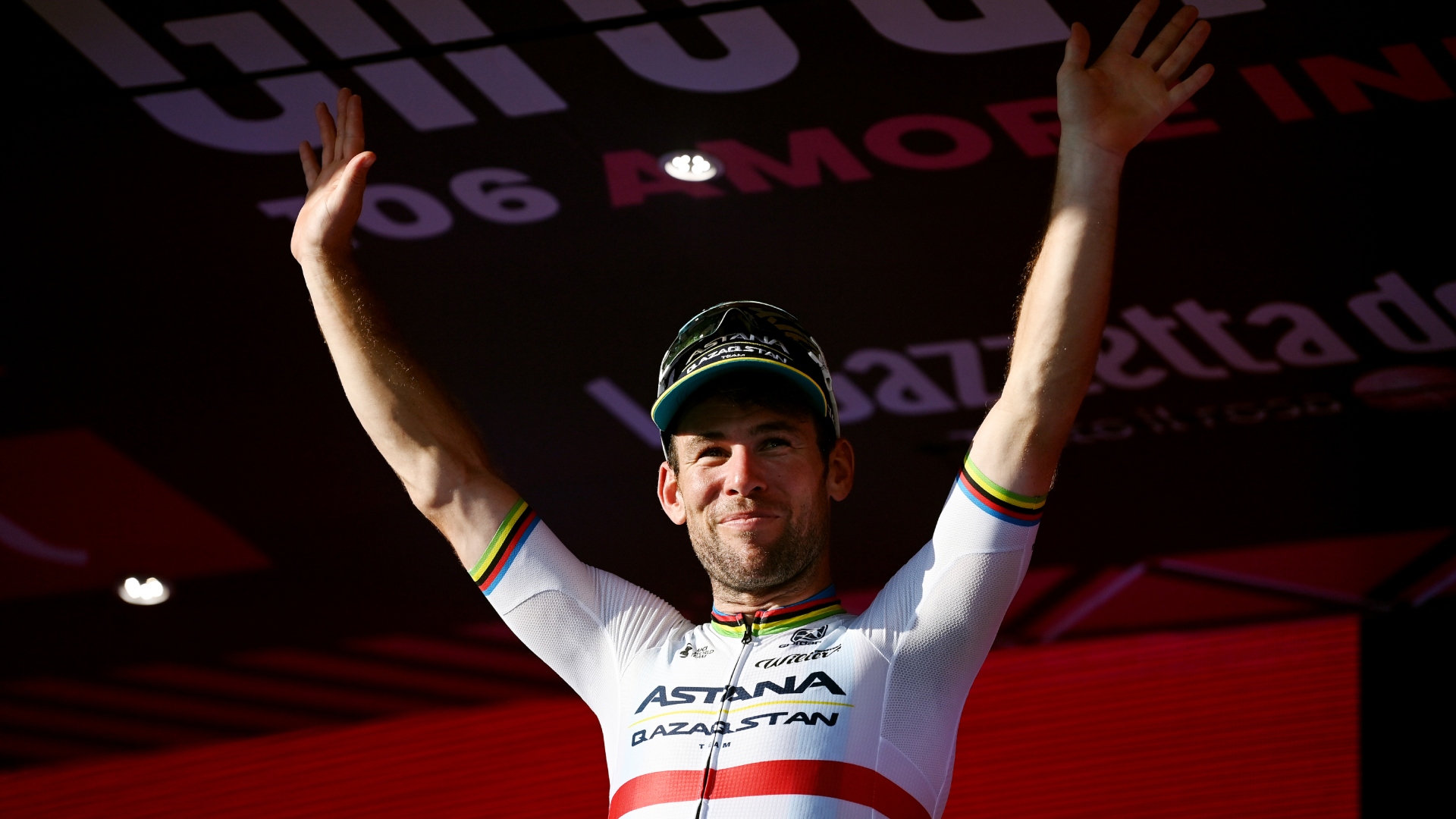

Rob Spedding
Google's autocomplete can tell us a lot about what the wider public wants to know about cyclists. Apparently, they're as puzzled about why we say 'chapeau' as they are about how the hell bike rider's pee in a race.
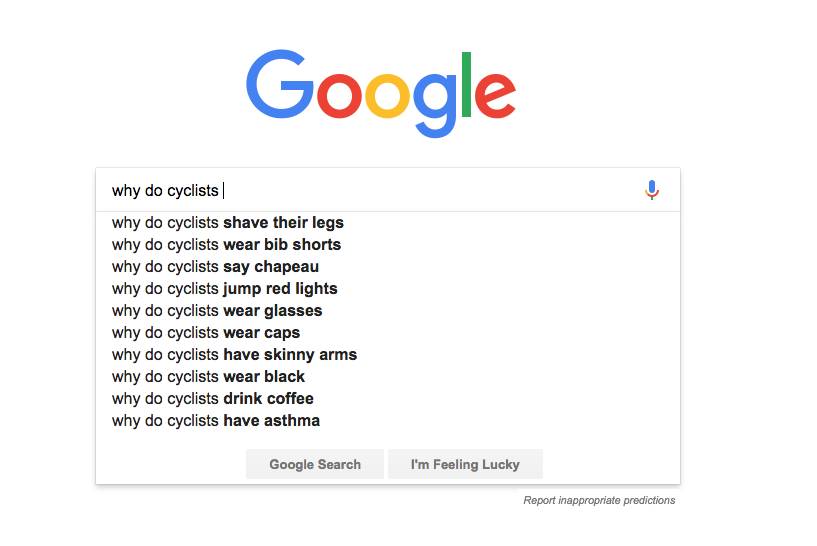
A French lexeme which translates to 'hat', to bestow a 'chapeau' upon another individual is to verbally express the tipping of your cap.
So - it's that simple - we say 'chapeau' when we want to pass on congratulations, well done; it's a shorter (and more audibly pleasing) way of saying 'cor, blimey mate, I certainly couldn't do that'.
Our cross-channel friends are in the lucky position of playing host to the greatest bike race race in the world - the three week Tour de France dominates cyclists's TV sets and laptops for the month of July and is responsible for drawing in crowds not usually embroiled in a love of two wheels over the rest of the year.
Thus, a lot of French language has slipped into the vocabulary of the peloton (see!) - almost to the point we barely notice it. In case any of the other commonly used French phrases, masquerading in the English speaking cyclist's vocabulary as commonplace, are confusing, here's a quick guide...
Allez
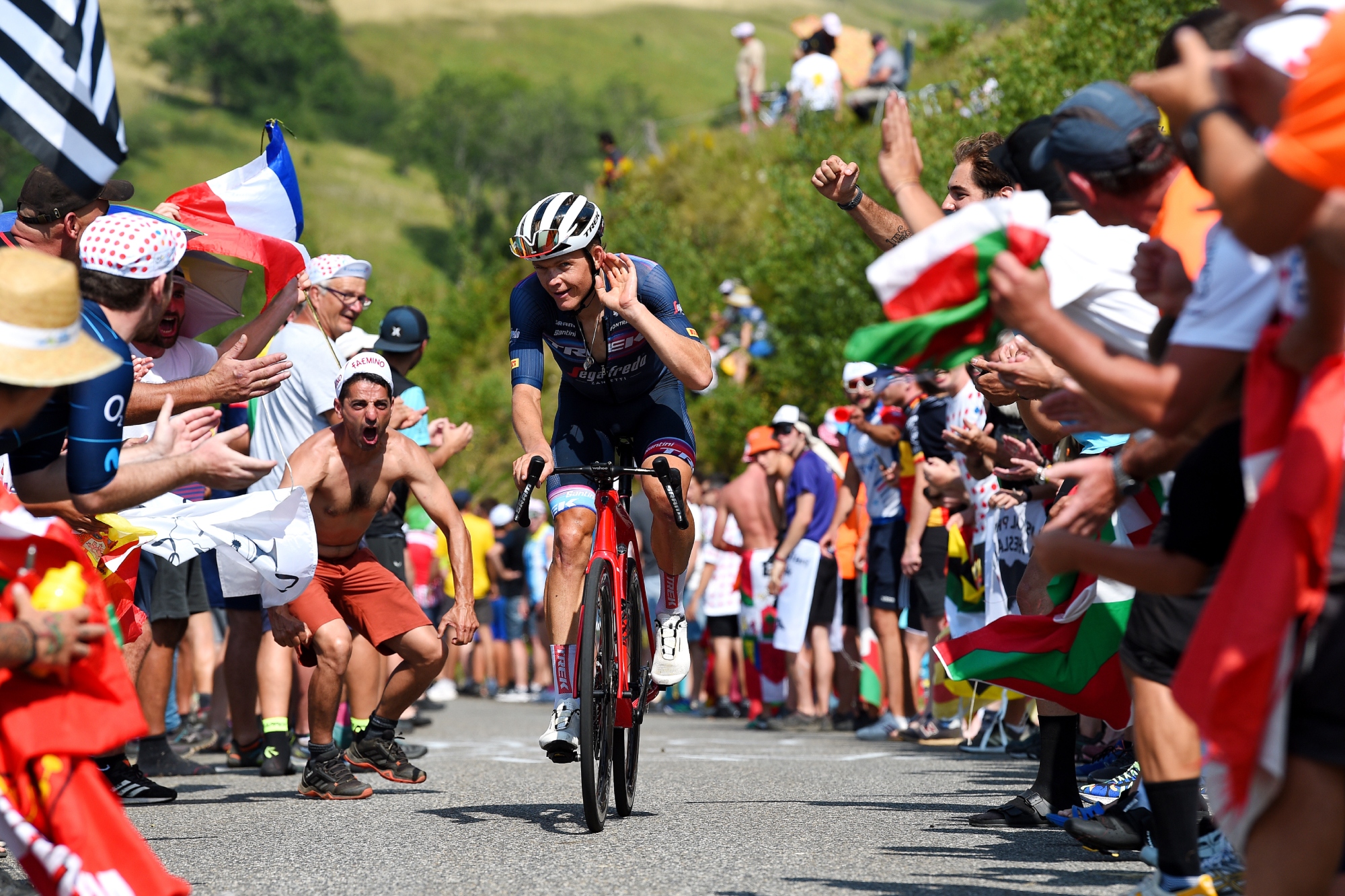
'Let me hear you shout Allez!' Tom Skujins listens out as he climbs the Peyragudes during the 2022 Tour de France.
The cry that fans shout from the side of the road, typically on a climb. Translated, 'Allez, Allez, Allez!' means 'Go, Go, Go!' - and it must always be uttered with a pint in one hand and a baguette (or a hot dog if you're spectating in the UK at a town centre crit) in the other.
Get The Leadout Newsletter
The latest race content, interviews, features, reviews and expert buying guides, direct to your inbox!
(Also the name of a Specialized model of bike which was the first racing machine owned by 70 per cent of the amateur cycling community, conveniently for Spesh, Allez rings well with aluminium alloy, which is what like this bike is made of.)
Baroudeur
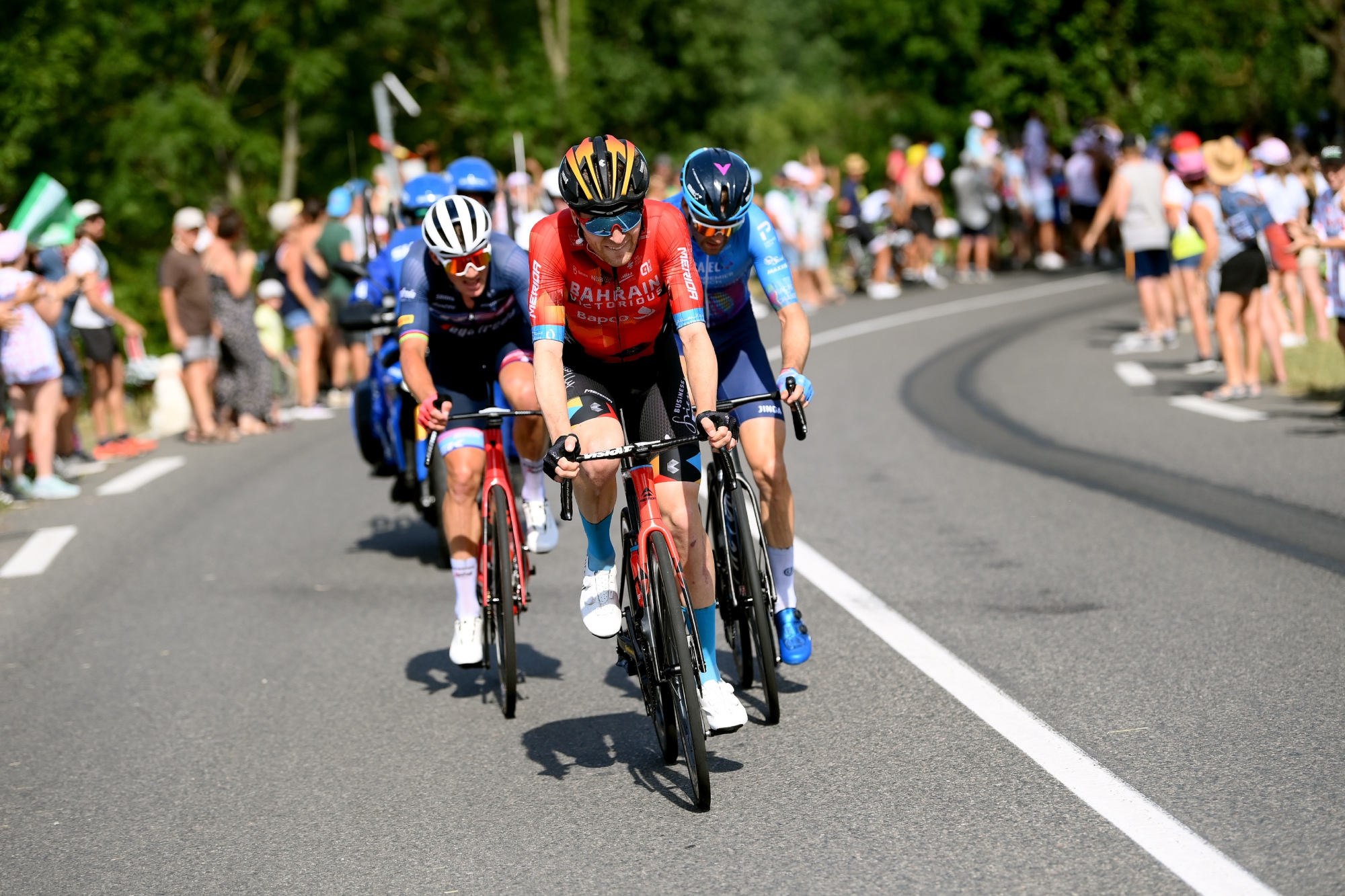
Fred Wright (Bahrain Victorious) is good example of a modern-day baroudeur.
This one means 'warrior' - and it's a term bestowed upon the rider courageous (or stupid - depends how it pans out) enough to breakaway from the peloton, in pursuit of a solo win - and failing that, at least giving us something to write about on a 200+km sprint stage and gaining the opportunity to 'montre le maillot' (get your sponsors on TV).
Directeur Sportif
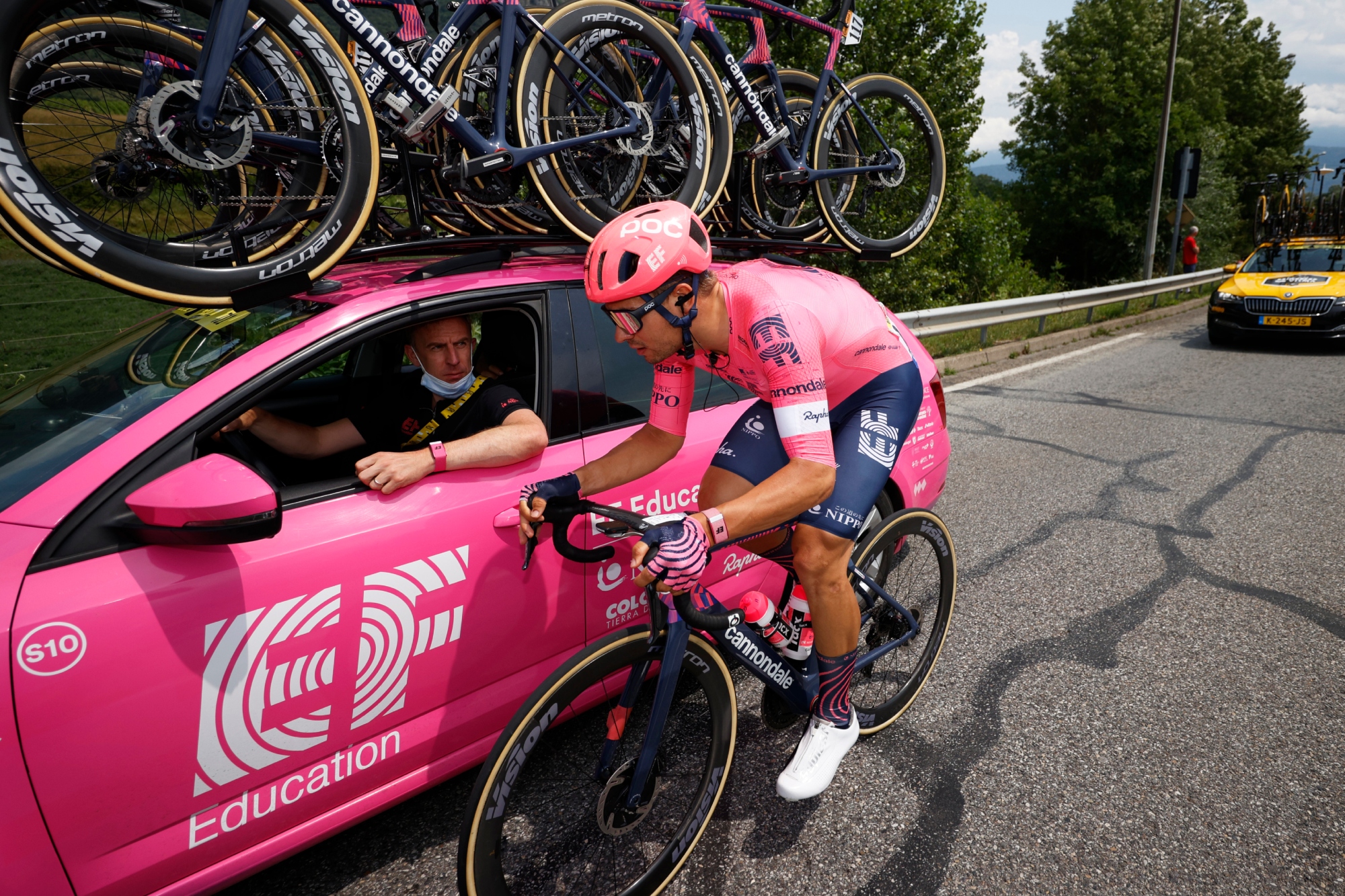
'So, we're going to appear on a Netflix show in a couple of years?'
The person sitting in the team car who is in charge of tactics, typically treating all the cyclists like chess pieces on a board. If you've been watching Tour de France: Unchained on Netflix, then you'll recognise them as the stressed characters with walkie-talkies and, occasionally, sweary outbursts.
Domestique
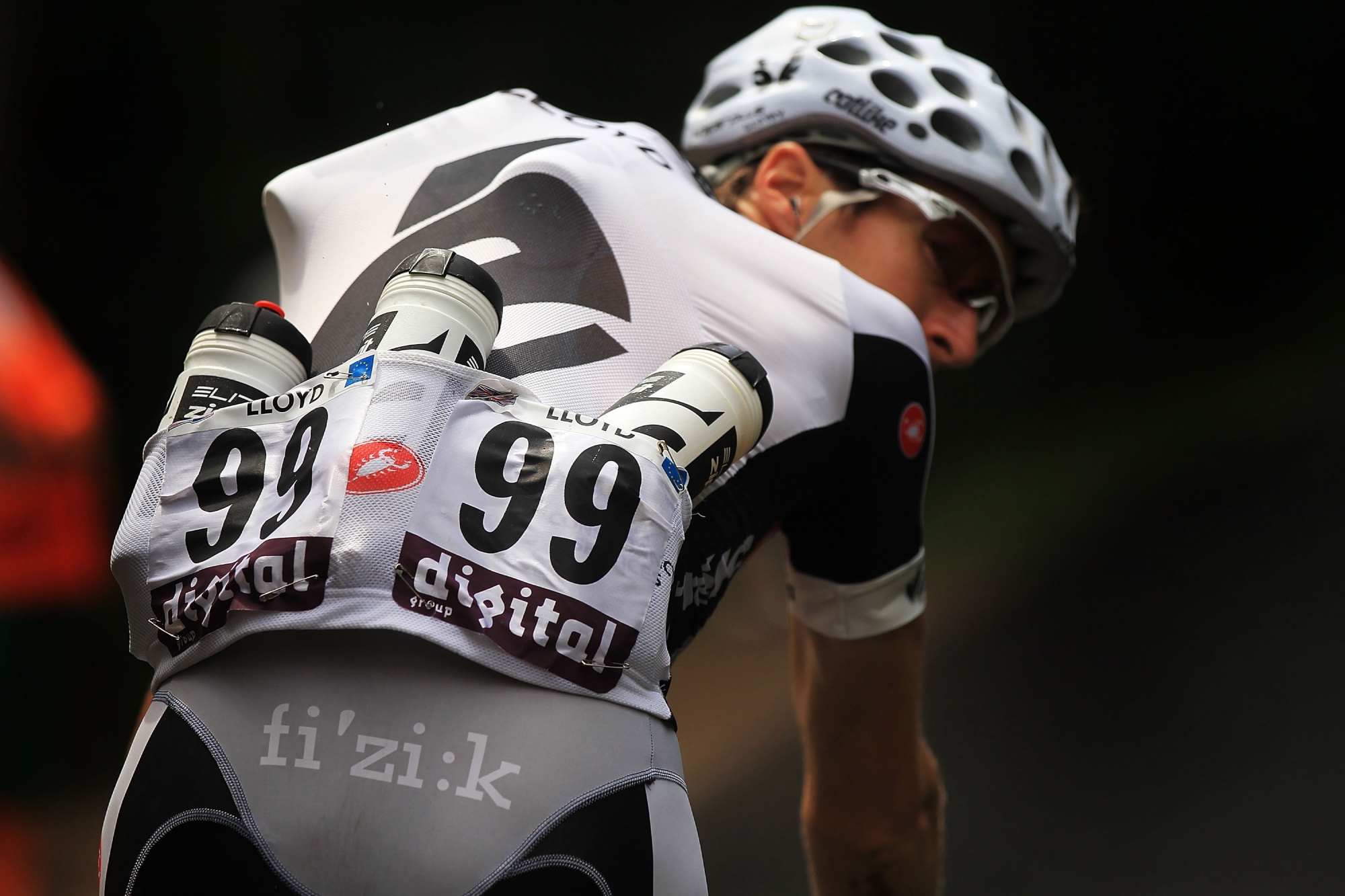
Before he did the heavy lifting on GCN, Britain's Daniel Lloyd sometimes did it for team-mates
Nothing to do with ironing your socks, replacing toilet rolls or doing the washing up.
But by the same token, if domestiques stopped doing their oft unreported jobs, all the teams would grind to a halt. These riders protect their team leader, bring them bottles from the team car, and generally sacrifice their own glory for the greater good.
Echelon
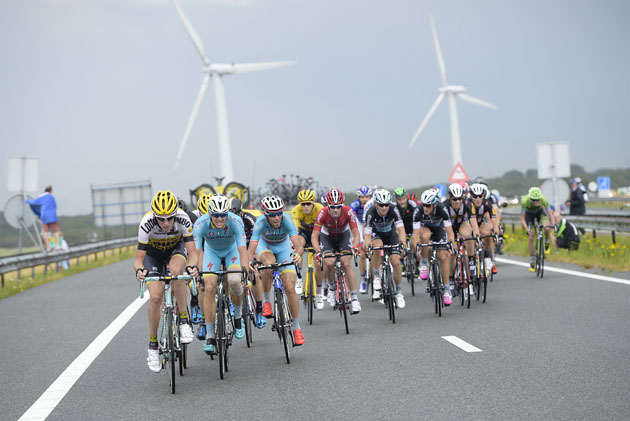
Riders form echelons on windy days.
A formation used in cross winds, where riders sit slightly to the side of each other instead of directly behind (as per a pace line, which would be preferable in a head wind).
Étape
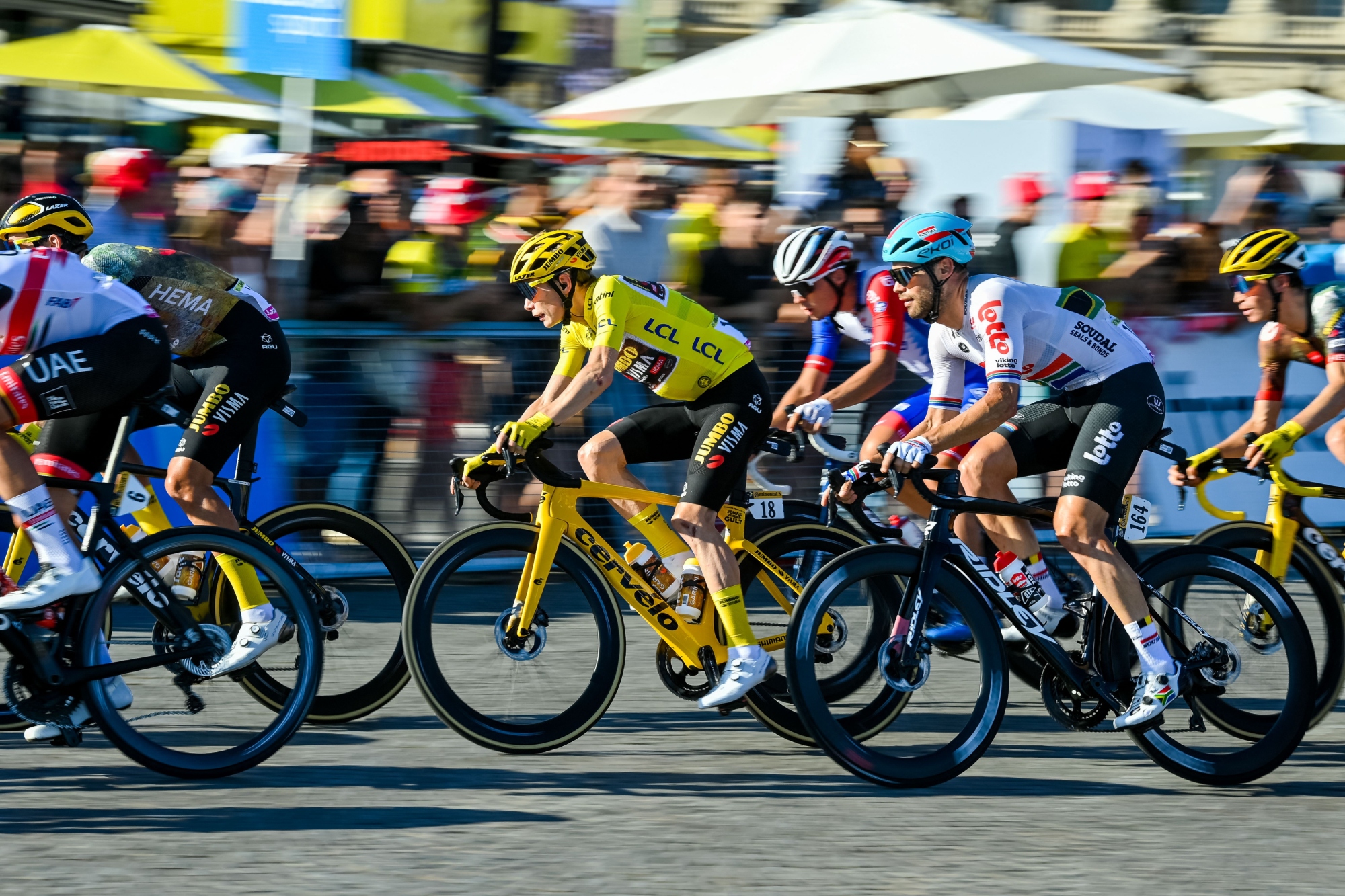
Jonas Vingegaard on 'étape' 21 of the 2022 Tour de France.
The stage. The Tour de France has vingt-et-un étapes every year. And étape 21 traditionally finishes on finish on the Champs-Élysées in Paris. For amateur cyclists L'Etape du Tour is an annual opportunity to ride a stage of the Tour de France
Équipe
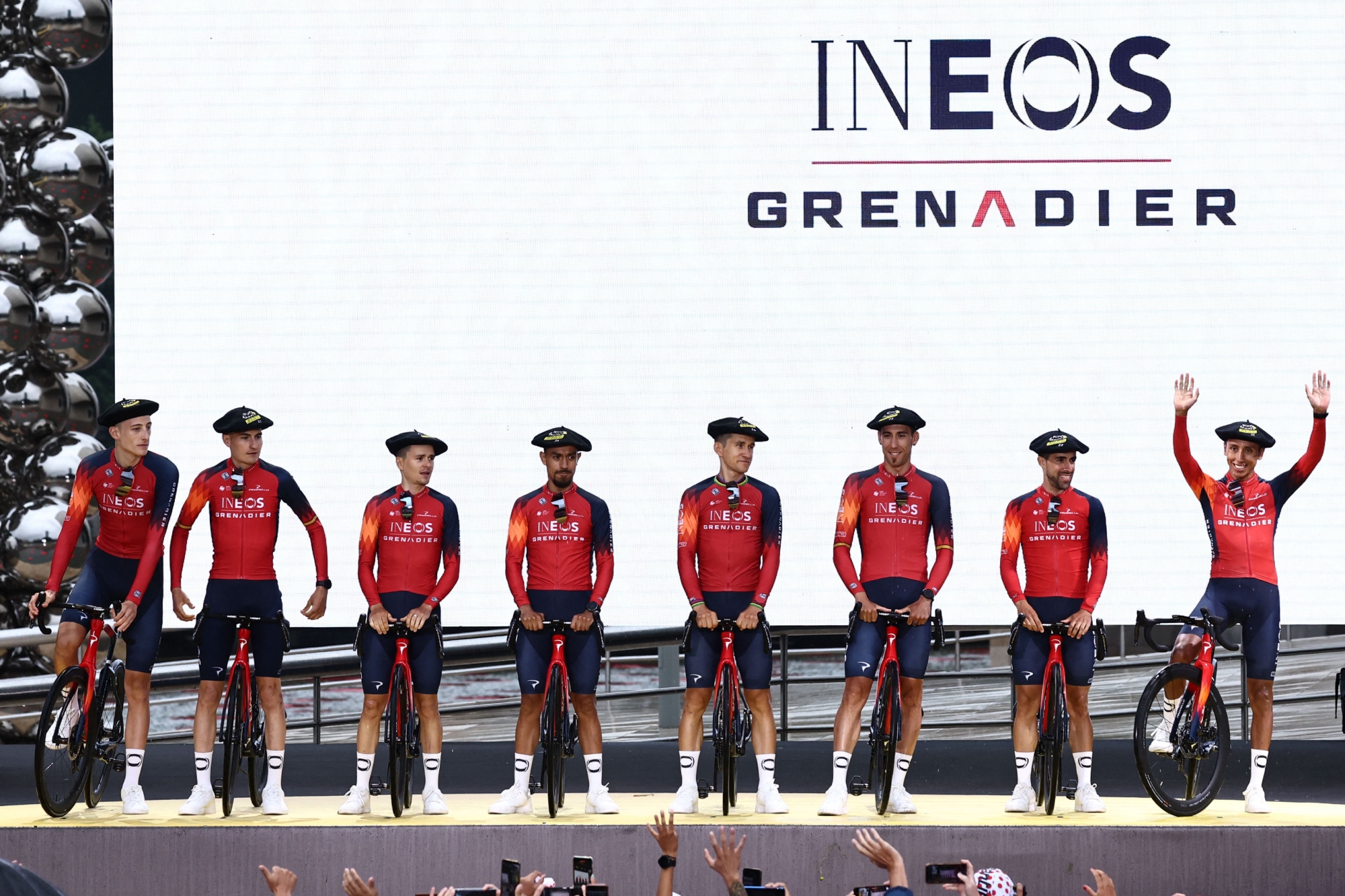
Ineos-Grenadiers, winners of the team classification at the 2002 Tour de France, line up before the start of the 2023 race
A team. Although cycling is ostensibly an individual sport, behind every successful rider is a strong team - see domestique. A lead rider's team will protect them in the peloton - see later - lead them up climbs and can play a huge part in one rider's victory. And you obviously need a good équipe for a team time trial (TTT)
Flamme Rouge
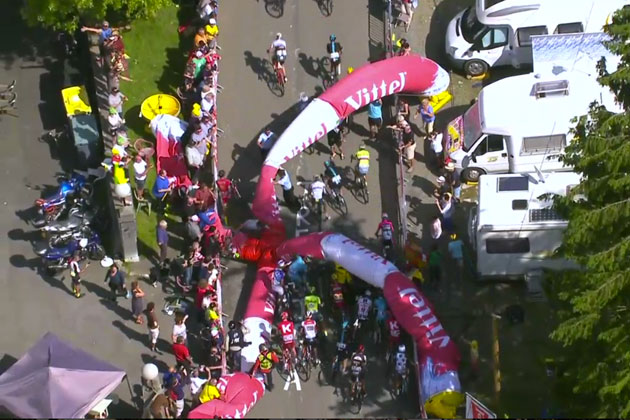
The Flamme Rouge famously collapsed on stage seven of the 2016 Tour de France
A red flag denoting that there's one kilometre left until the finish line, the flamme rouge haunts the dreams of baroudeur's who want nothing more than to see it come into view with a healthy margin on the chasing bunch.
Grimpeur
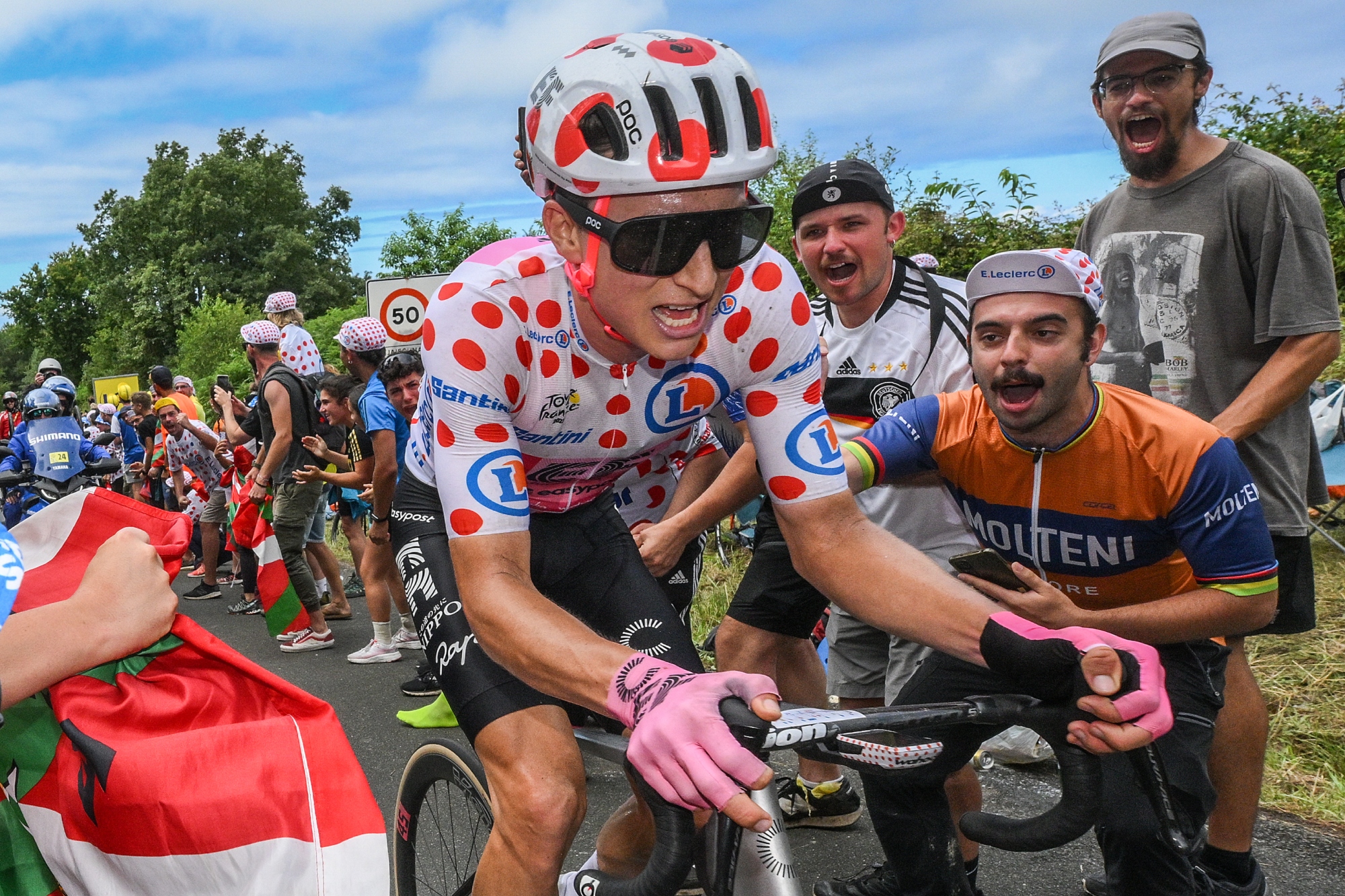
Neilson Powless (EF Education-EasyPost) in the Tour's best climber polka dot jersey, Bet someone is shouting Allez
A climber. At the Tour de France one of the jerseys awarded to the leaders of different in-race competitions is the coveted polka dot jersey for the best climber. Points are awarded on climbs of each stage - sorry étape. Oh, and of course that jersey has a French name - maillot à pois.
Grupetto/Autobus
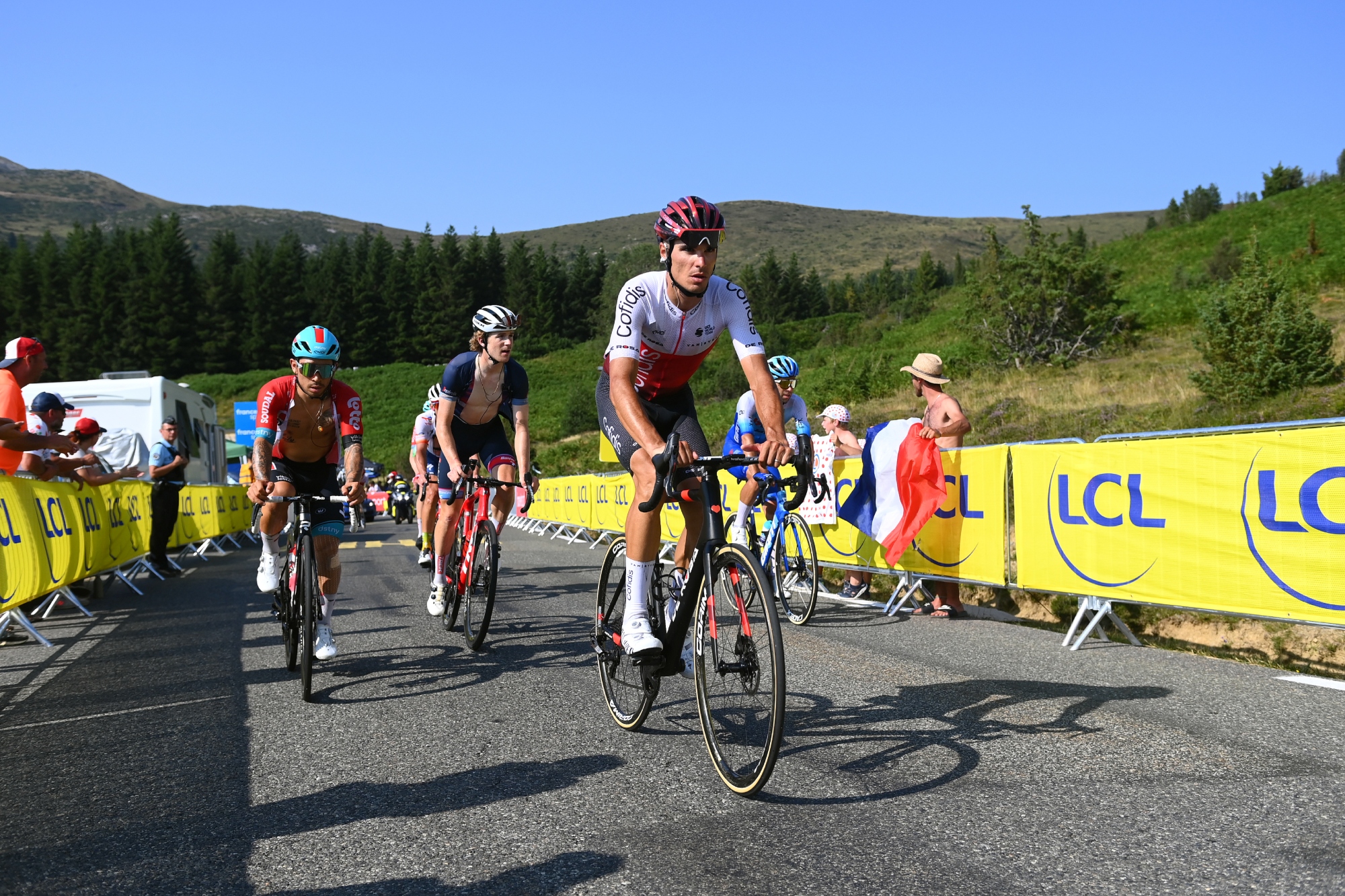
Fast lads at the back - non-climbers form groups twoards the back of the race on mountain stages
Okay, okay - we know grupetto isn't actually a French term, but it's the phrase most often used for the position in which everyone who is not a climber will find themselves in the mountain stages - the last group on the road. There is a French term, though, so if you want to stick purely to Gallic then refer to the grupetto as the autobus.
Hors categorie
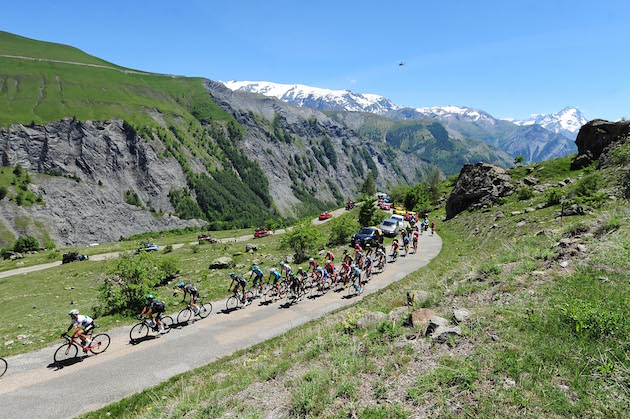
The Alpe d'Huez is one of the Tour's most famous Hors categorie climbs and has been used 30 times
A climb that is 'beyond categorisation' - read: very long, very steep. Très horrible.
All climbs which play a part in the mountains competition are categorised, from Category four to HC - with the former being the easiest. Rider's attempting to hold the aforementioned maillot à pois will be motivated to crest an HC climb first as there will be more points on offer.
Lanterne Rouge
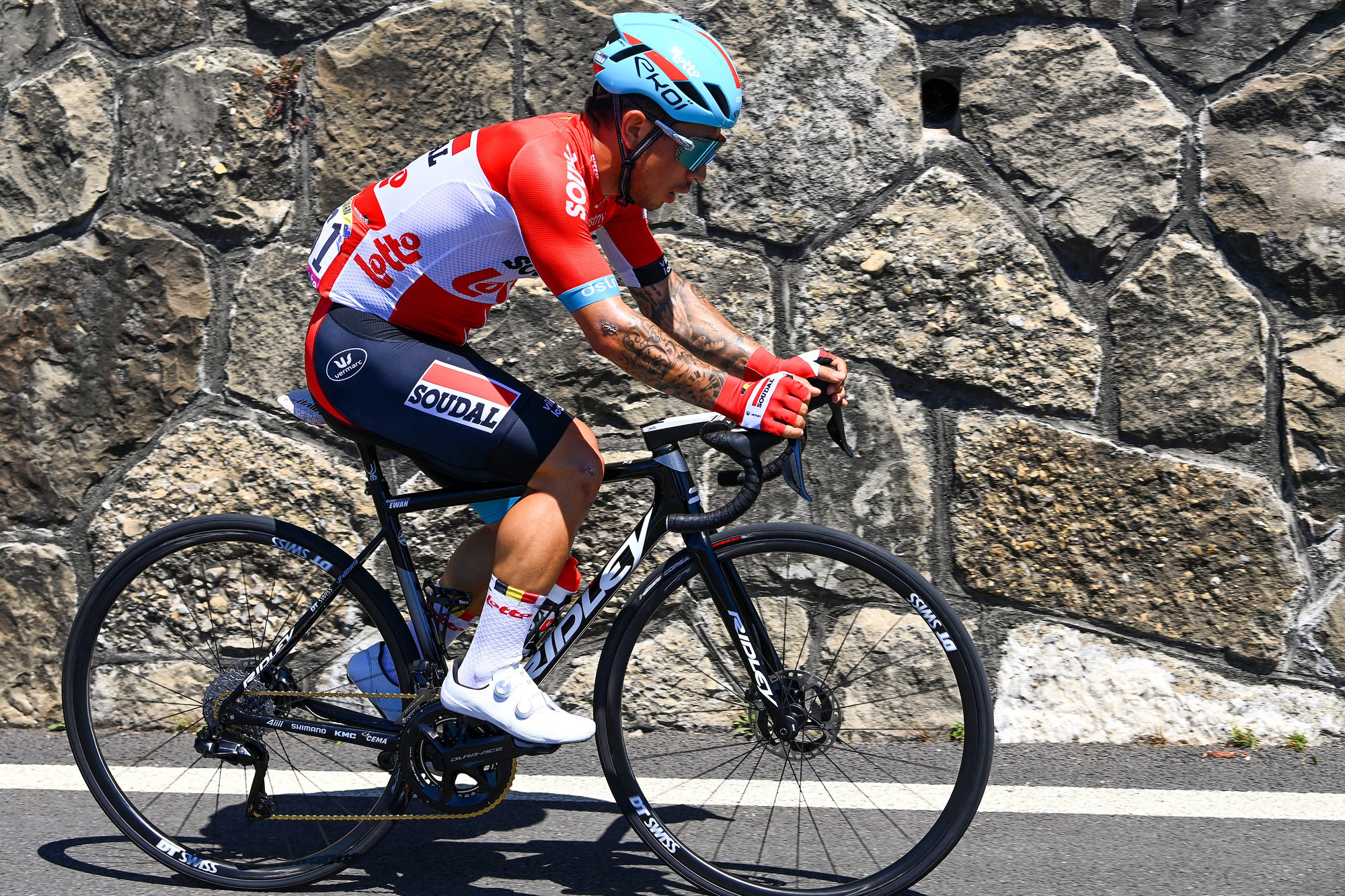
Caleb Ewan (Lotto Soudal) endured a tough Tour de France in 2022 and ended as the lanterne rouge. But at least he finished!
Well, someone's got to be last - and being called the 'Lanterne Rouge' at least makes it sound cooler.
La tête de la course
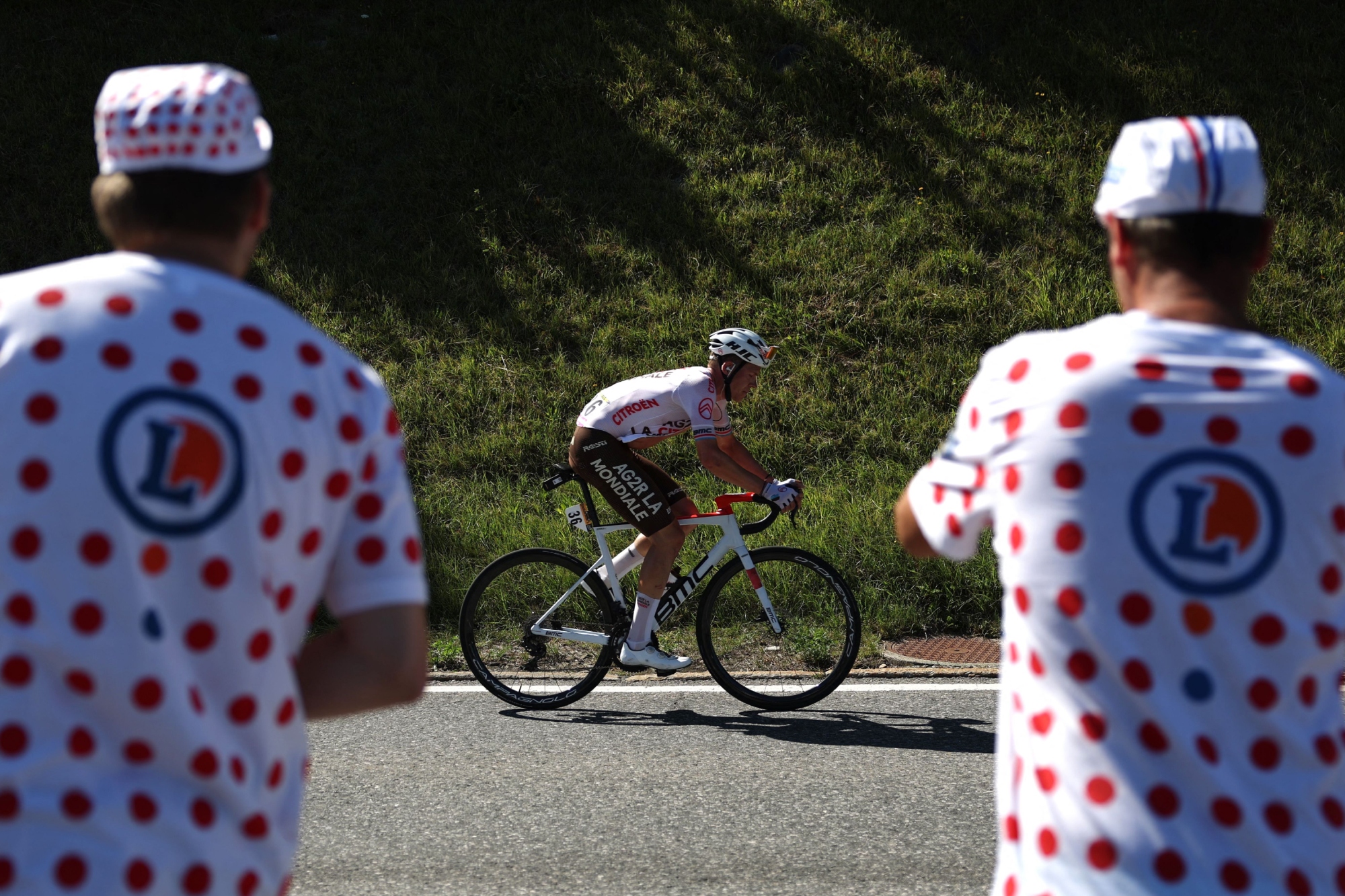
Bob Jungels (AG2R Citroen) put in a huge solo effort to win stage 9 of the 2022 Tour de France
Precisely the opposite - the head of the race, usually on the road (i.e the breakaway).
Maillot jaune
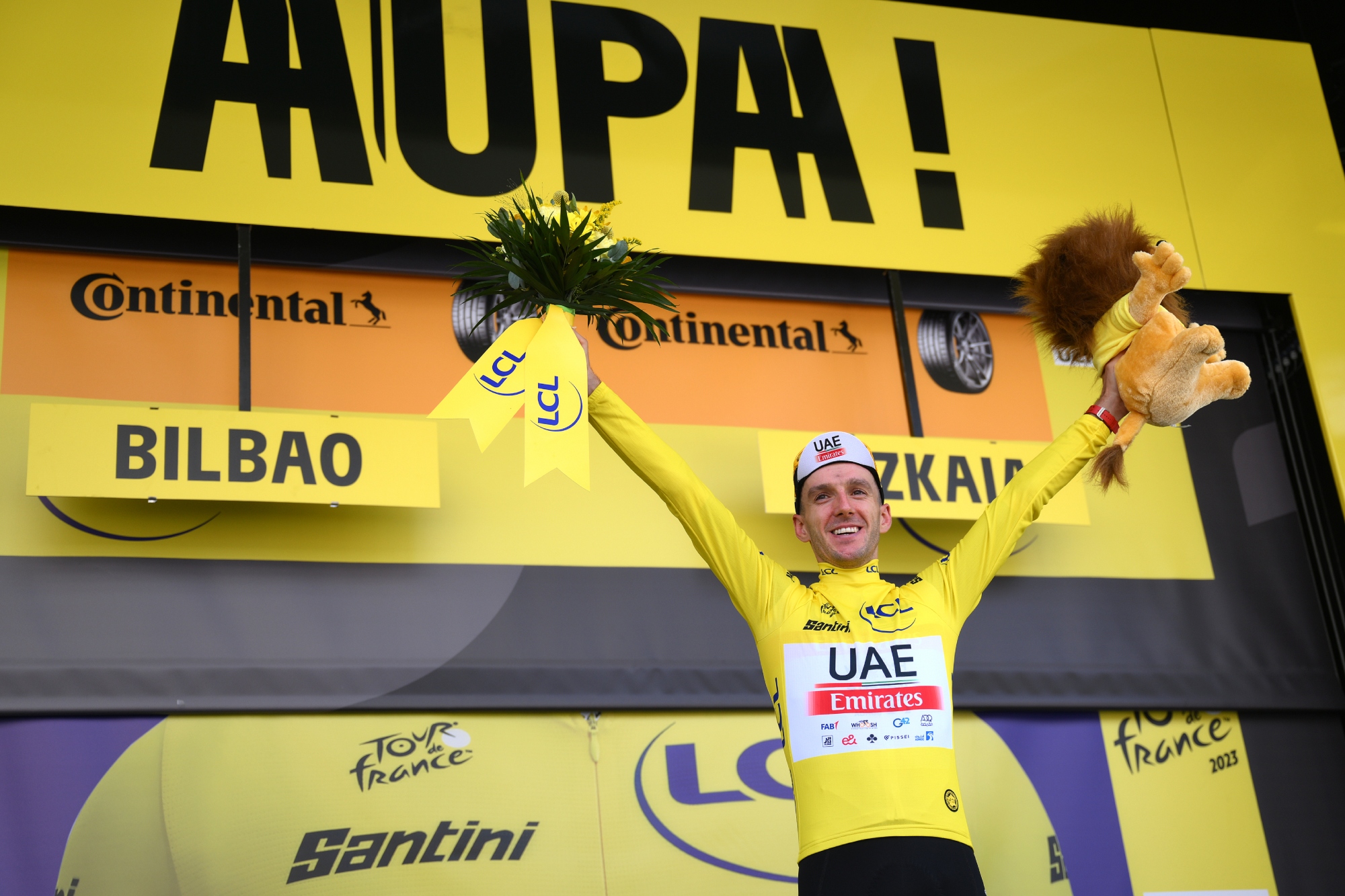
Britain's Adam Yates (UAE Team Emirates) was the first rider to be awarded the maillot jaune at the 2023 Tour de France
Maillot means jersey - so the 'jaune' variety is the yellow one, worn by the overall la tête de la course. The wearer will usually change a number of times during the race - the leader in the general classification at the start of each stage rides in yellow. Whoever is wearing the maillot jaune come the start of stage 21 in Paris is overall winner. It isn't the only jersey at the Tour - we've already mention the polka dot King of the Mountains jersey, but there's also the green jersey for the best sprinter and the white jersey for the best young rider.
Peloton
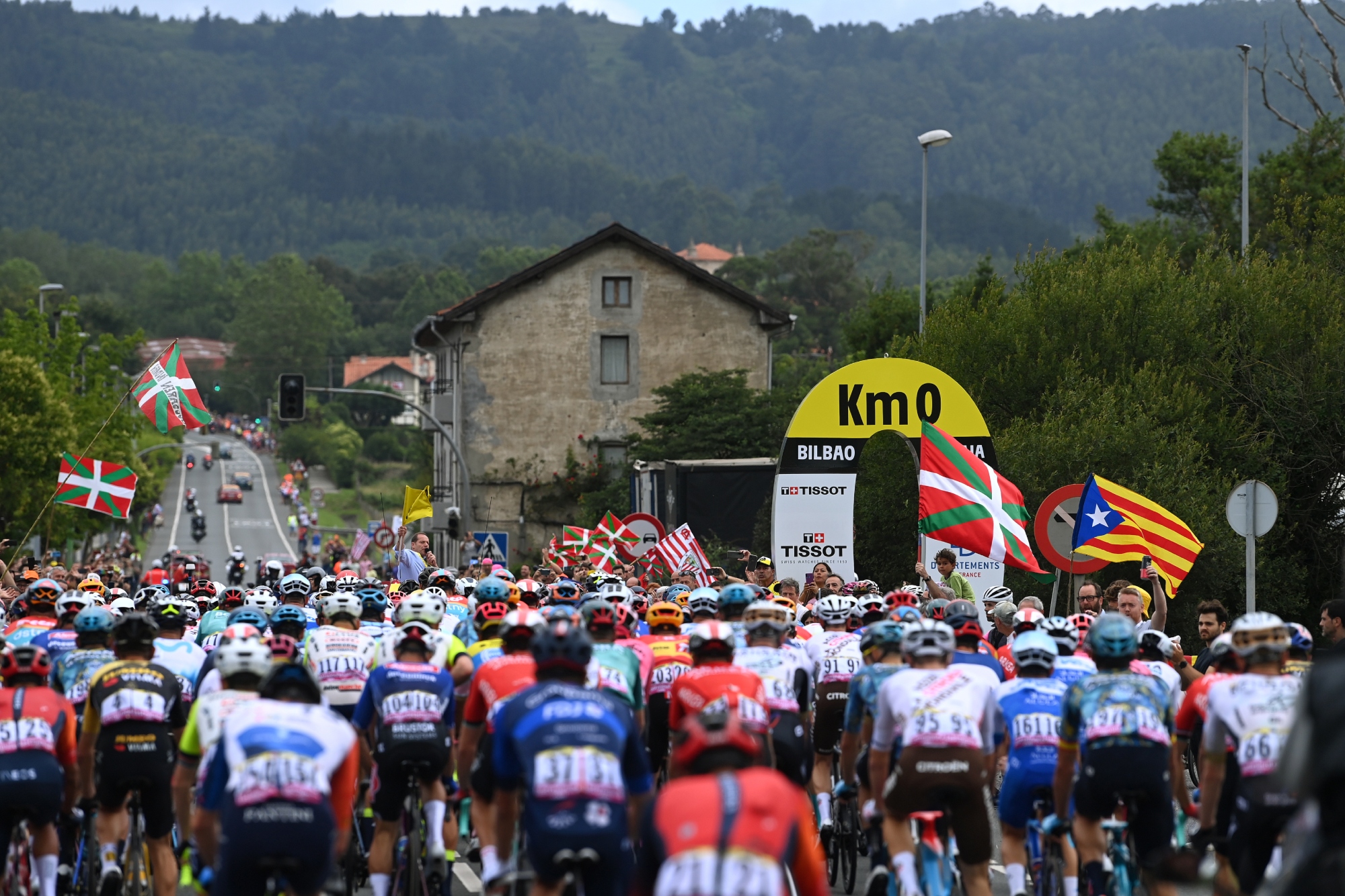
This peloton definitely won't fit in your living room
Before it became synonymous with indoor cycling and personal trainers, peloton was only ever used to describe largest group of riders - anyone off the front is a breakaway, and anyone off the back is in the grupetto, or - less kindly put - dropped.
Puncheur
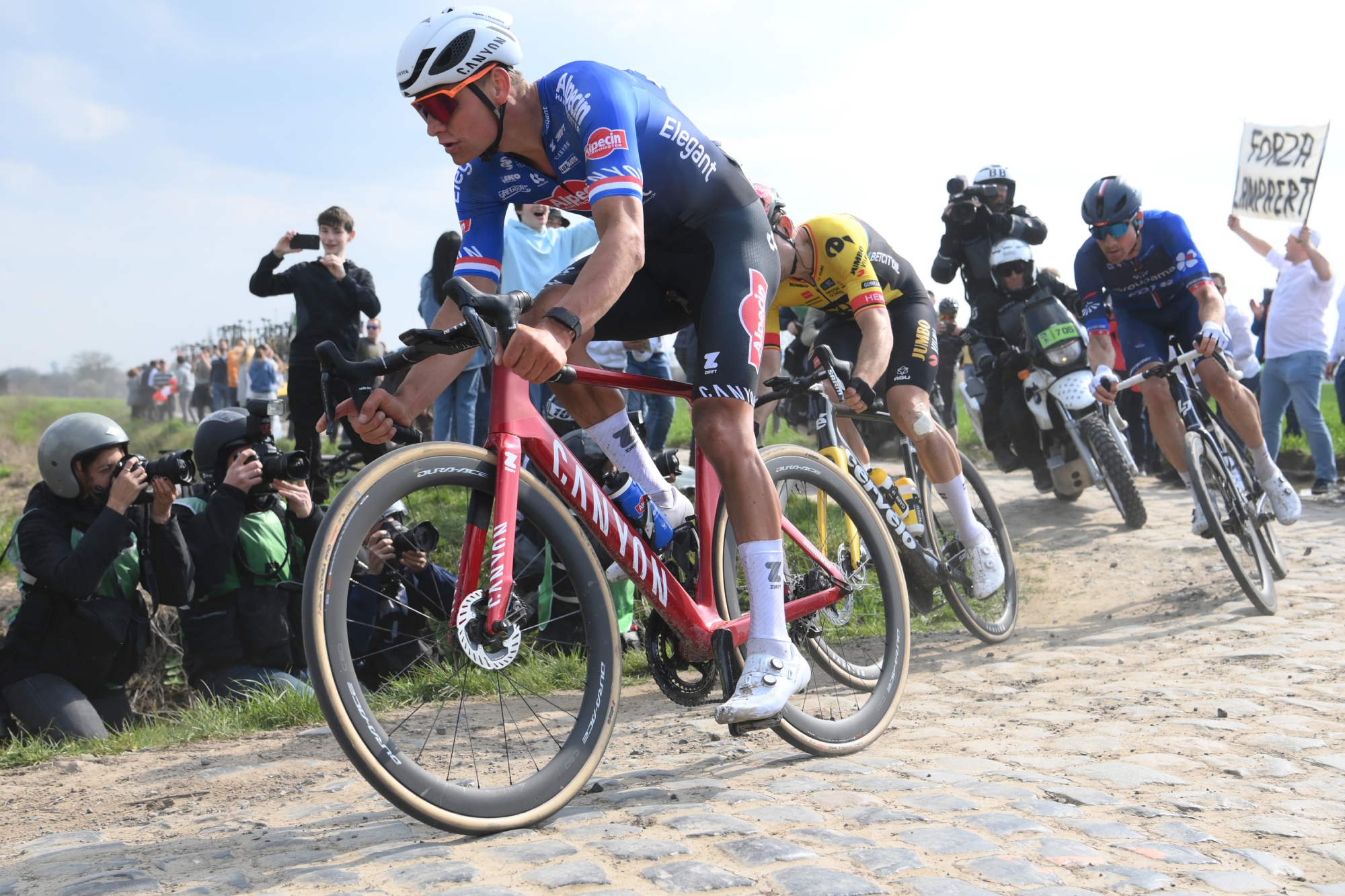
Mathieu van der Poel - one of the best puncheurs around today - on his way to winning 2023's Paris-Roubaix
A rider who specialises in short, punchy climbs - typically someone like this will excel at the Spring Classics.
Rouleur
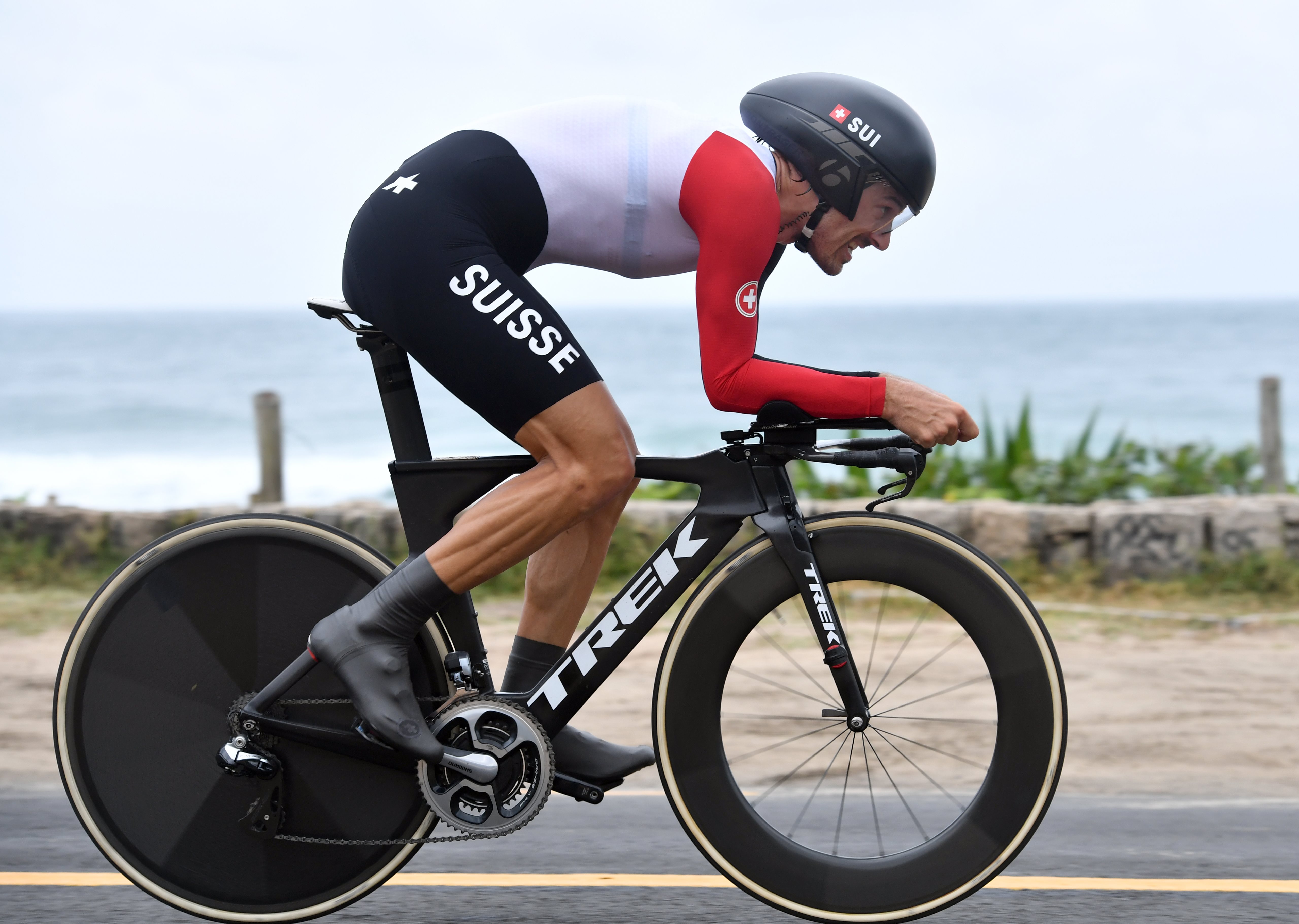
Switzerland's Fabian Cancellara was one of the all-time great rouleurs
An all rounder rider, who is usually most at home churning a big old gear on flat roads - will do well in a time trial, but not if it's uphill.
Soigneur
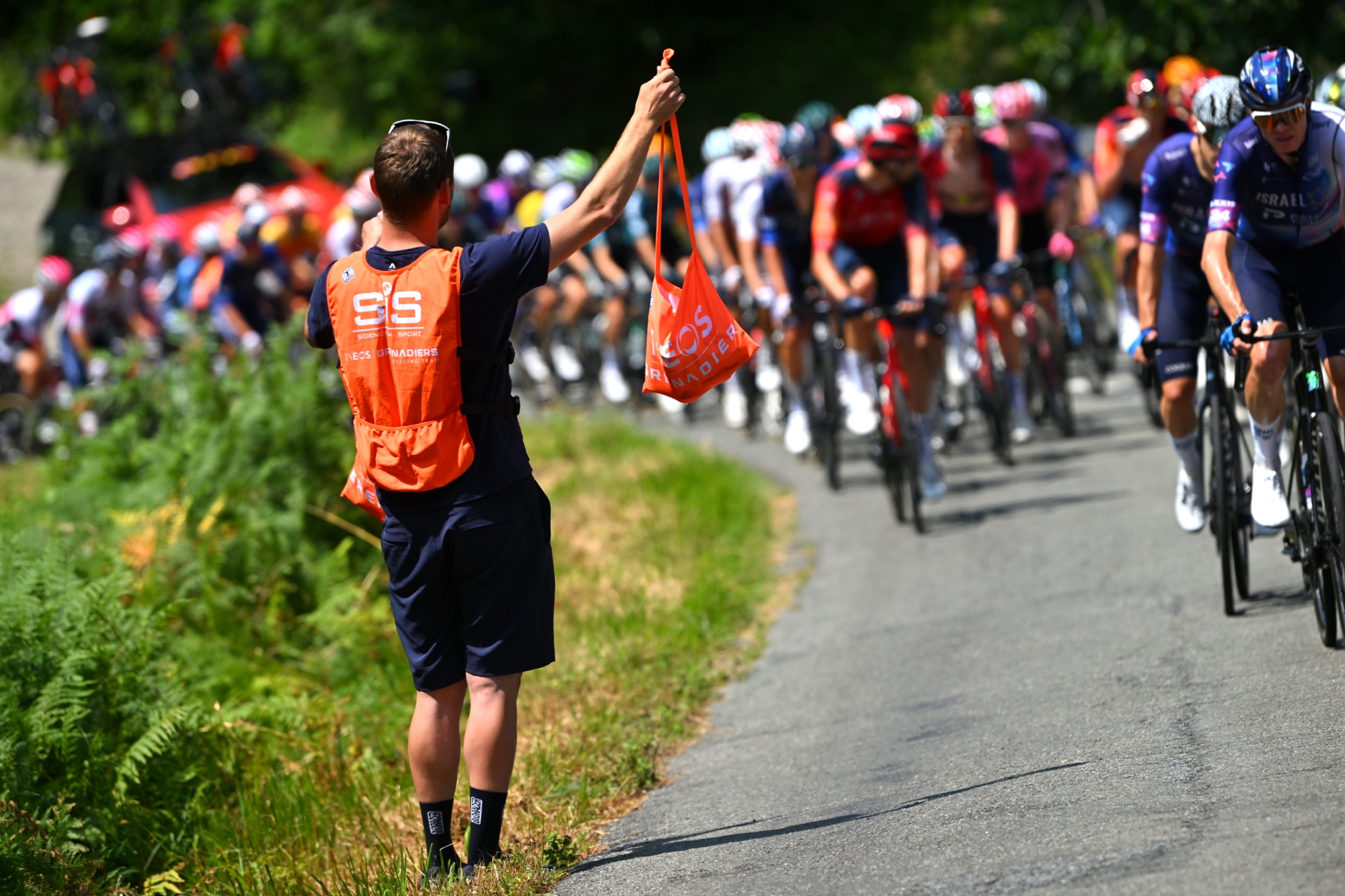
'Come and get it!' An Ineos soigneur holds out a feed bag
An individual who works tirelessly to ensure that riders are kept fed, watered, and clothed in a clean chamois. Not quite cycling's slaves, but not far off.
Souplesse
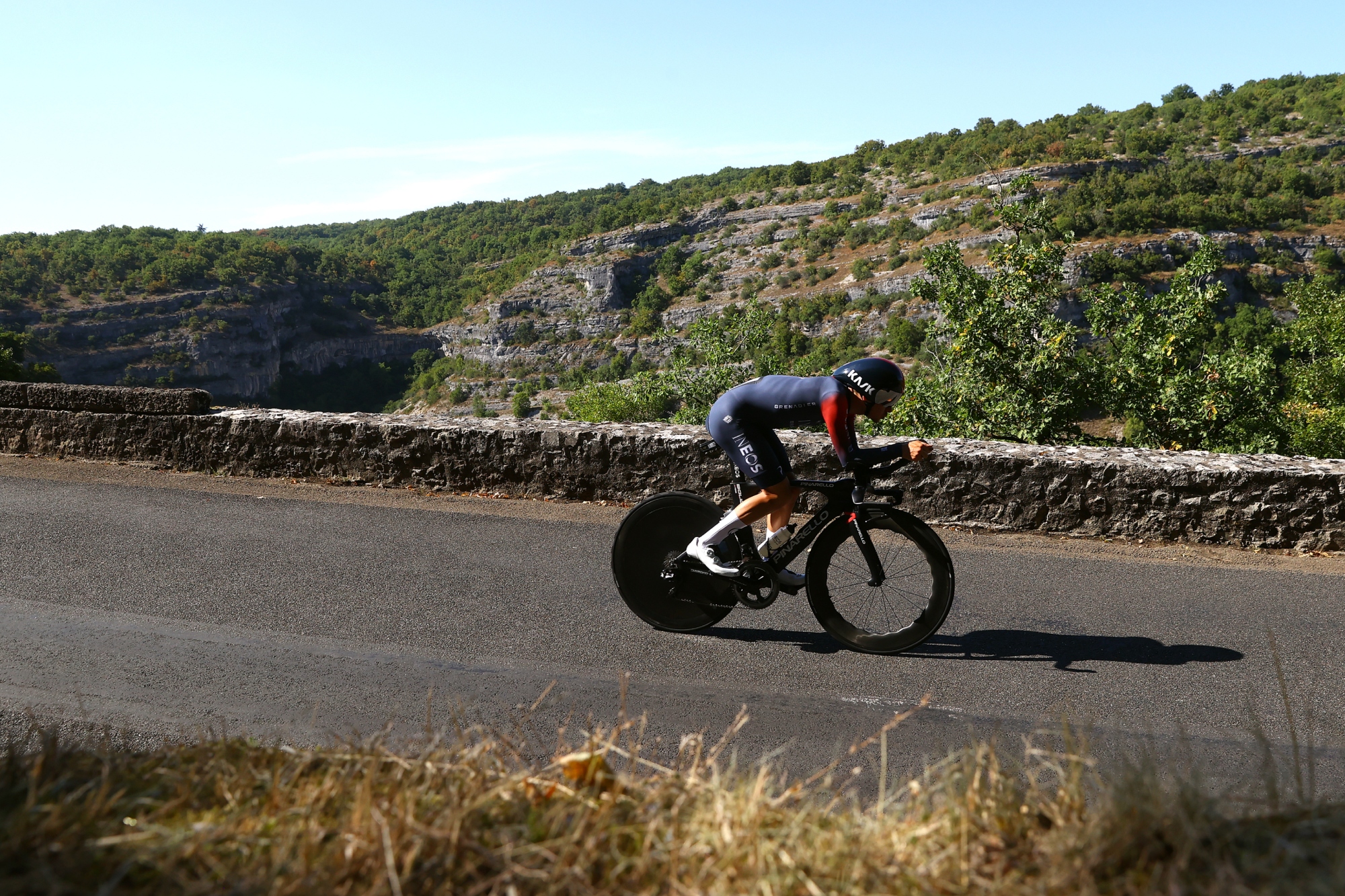
Tom Pidcock is one of those riders who makes pedalling look easy
Pedalling with such deftness and agility that it can only be commented on in French. We've written about it in English, but very few of us have achieved it.

Thank you for reading 20 articles this month* Join now for unlimited access
Enjoy your first month for just £1 / $1 / €1
*Read 5 free articles per month without a subscription

Join now for unlimited access
Try first month for just £1 / $1 / €1
Michelle Arthurs-Brennan the Editor of Cycling Weekly website. An NCTJ qualified traditional journalist by trade, Michelle began her career working for local newspapers. She's worked within the cycling industry since 2012, and joined the Cycling Weekly team in 2017, having previously been Editor at Total Women's Cycling. Prior to welcoming her first daughter in 2022, Michelle raced on the road, track, and in time trials, and still rides as much as she can - albeit a fair proportion indoors, for now.
Michelle is on maternity leave from April 2025 until spring 2026.
- Rob SpeddingContent Director
-
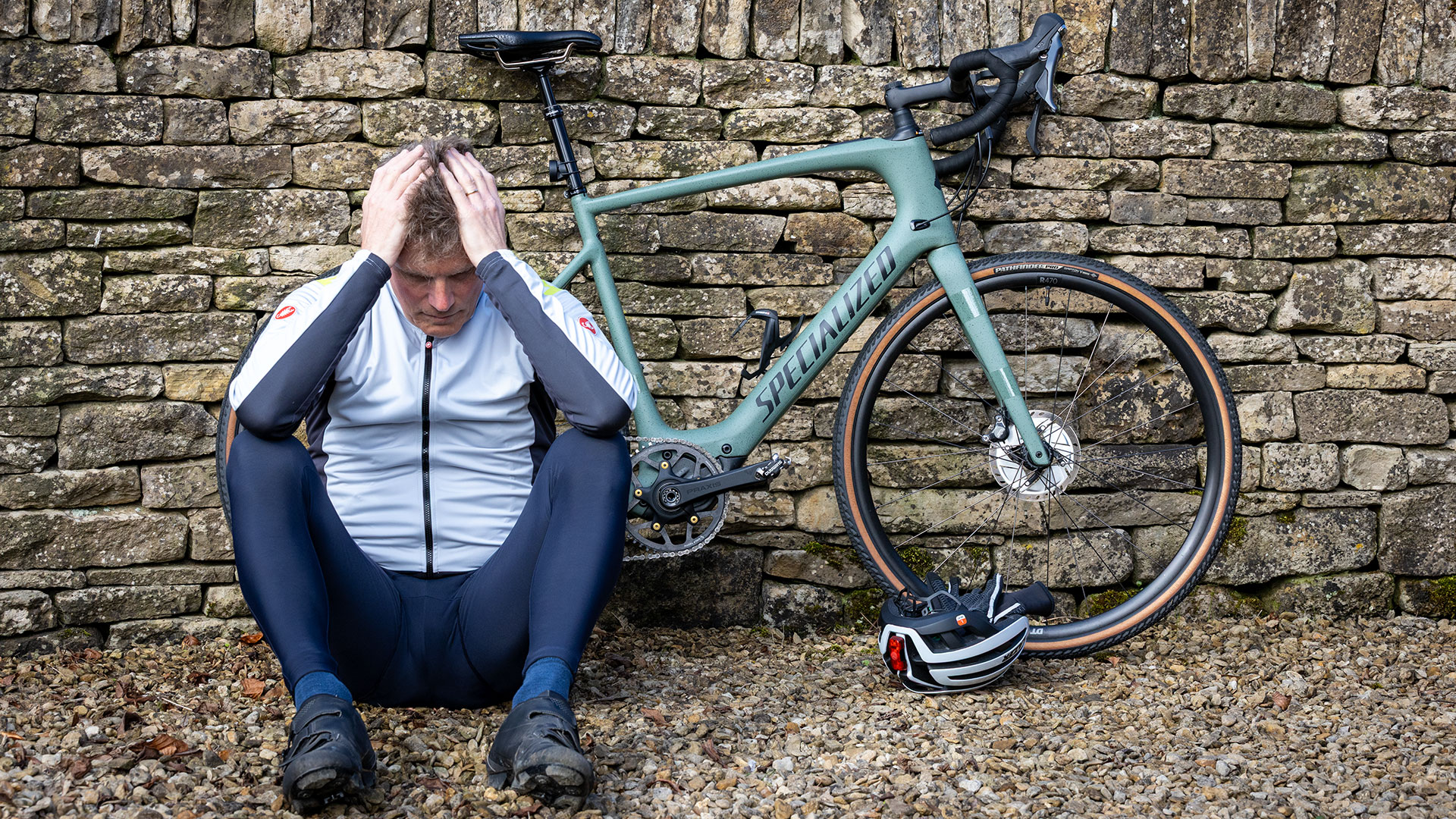 Why do I feel like a cheat every time I ride my e-bike?
Why do I feel like a cheat every time I ride my e-bike?I love my e-bike but struggle with the shame that accompanies me on my rides. Why?
By Simon Fellows
-
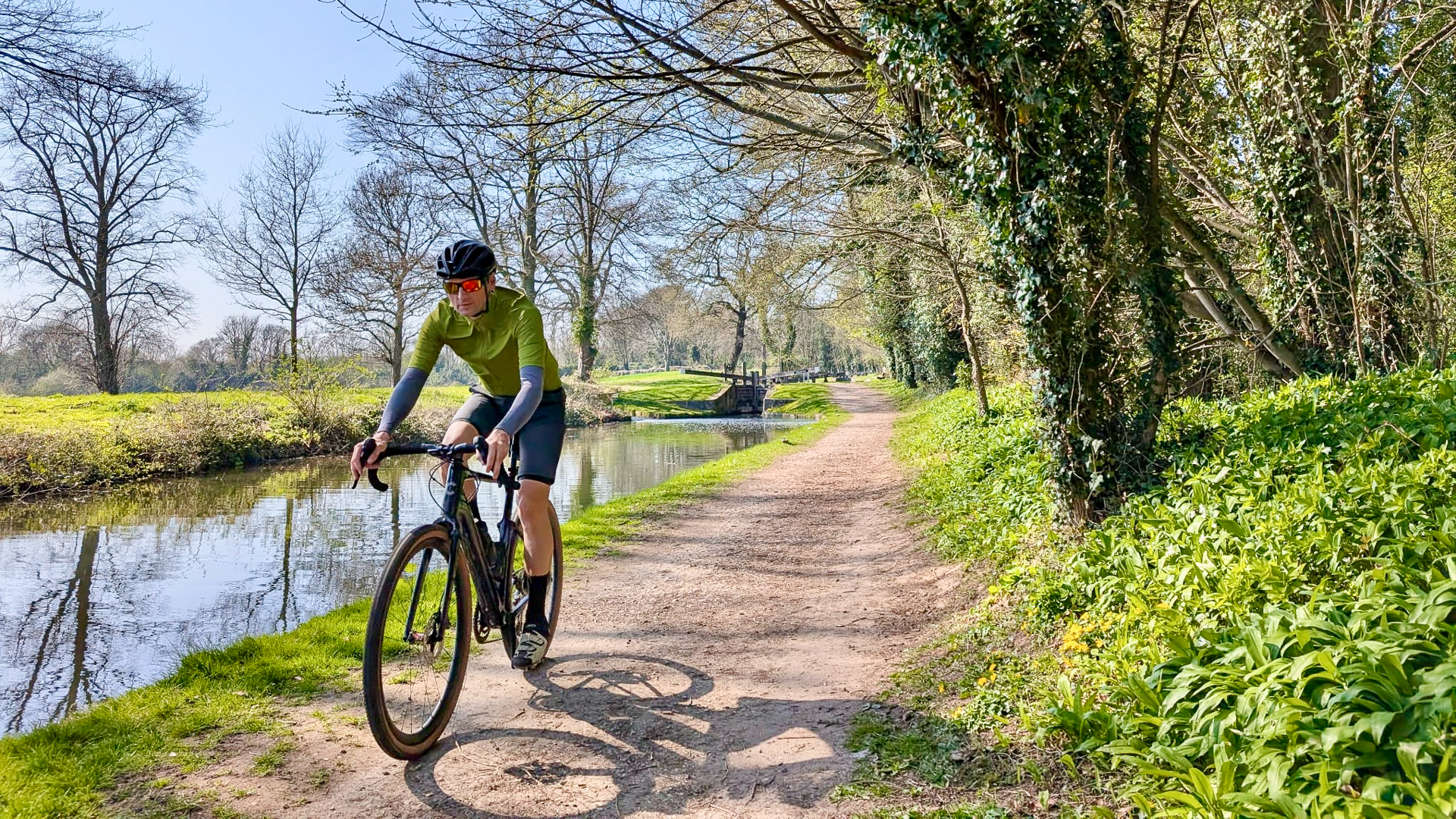 WTB Vulpine S TCS Gravel Tyre review - turbo charge your gravel racing (in the right conditions)
WTB Vulpine S TCS Gravel Tyre review - turbo charge your gravel racing (in the right conditions)The WTB Vulpine S TCS Gravel Tyre is unashamedly aimed at riders who value speed above all else; mudpluggers need not apply
By Tim Russon
-
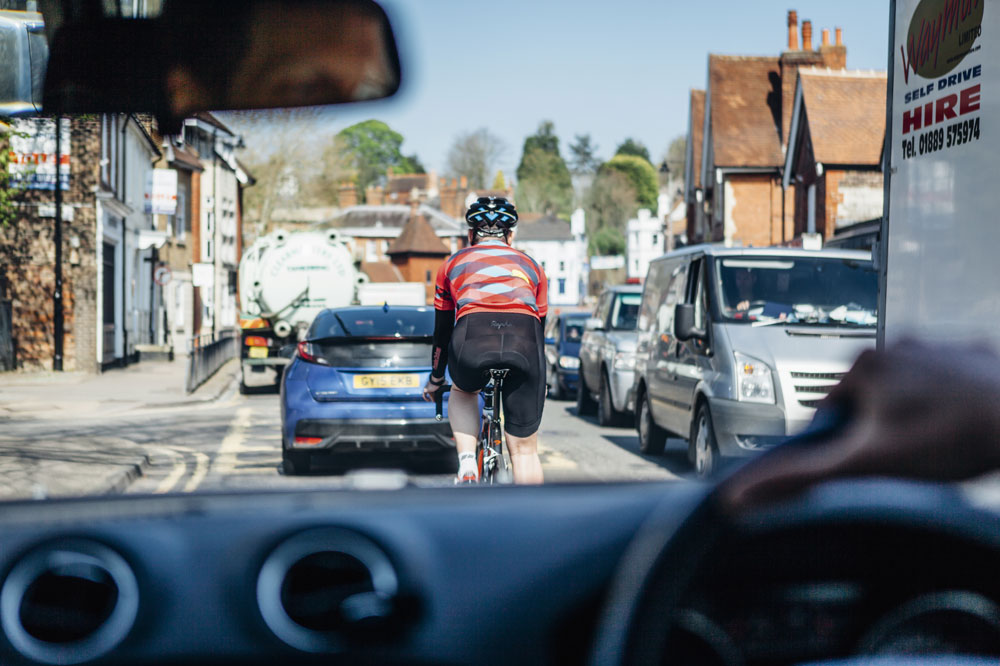 'Why don't cyclists have licences?' - You asked Google, and we've got the answer
'Why don't cyclists have licences?' - You asked Google, and we've got the answerCalls for cyclists to require licences continue to come, despite the government rebuffing the idea on multiple occasions
By Ryan Dabbs
-
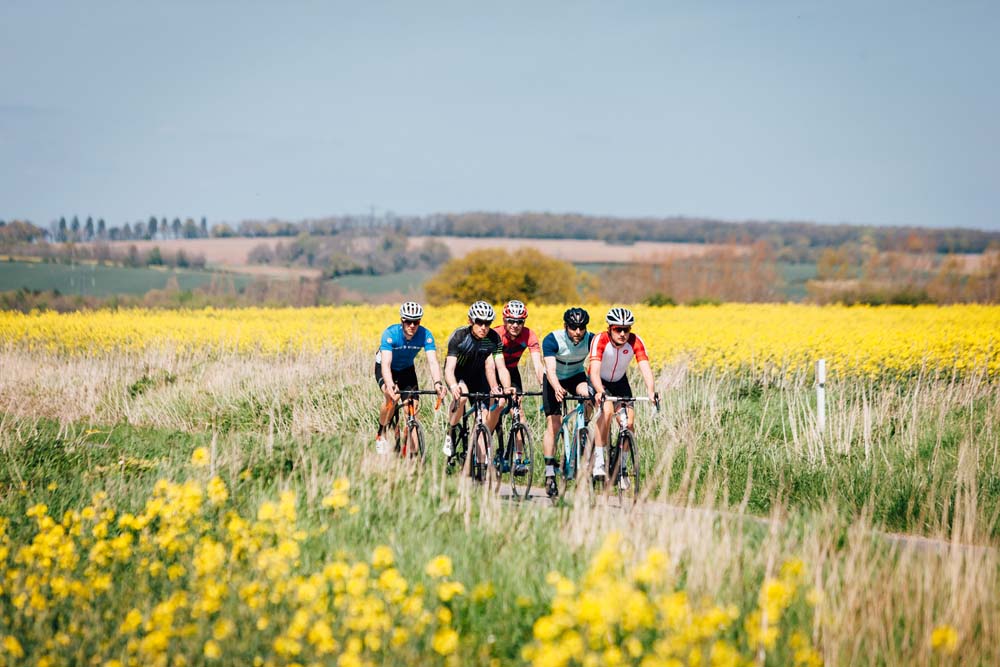 ‘Is cycling good for you?’ - you asked Google, and we’ve got the answer
‘Is cycling good for you?’ - you asked Google, and we’ve got the answerOne of the most common questions people ask about cycling on Google is ‘Is cycling good for you’, so we've got the answer
By Paul Knott
-
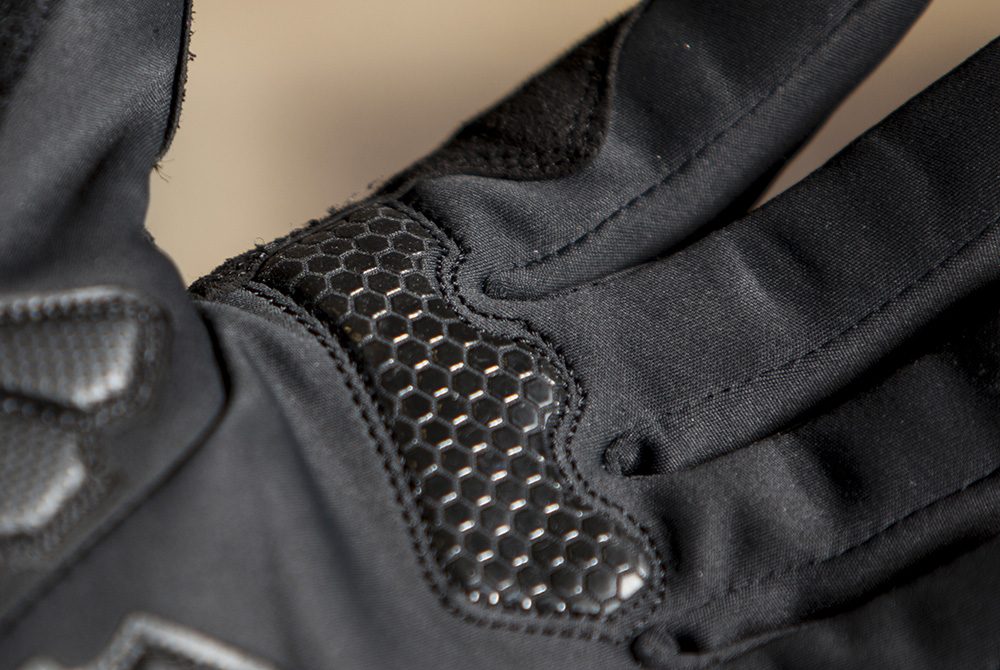 'Why do cyclists wear gloves?’ – you asked Google, and we’ve got the answer
'Why do cyclists wear gloves?’ – you asked Google, and we’ve got the answerIt's probably a dangerous sport (perhaps even more so than fixed gear crit riding), but every so often, we like to take a dive into Google and check out what people are asking about cyclists.
By Michelle Arthurs-Brennan
-
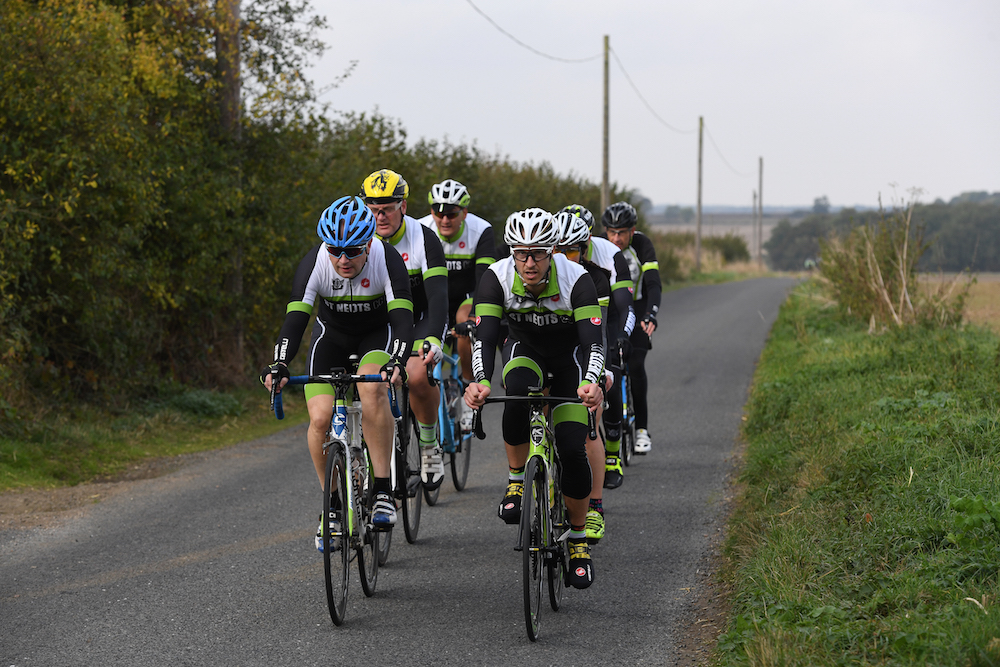 'Why do cyclists ride side by side?' - you asked Google, and we've got the answer
'Why do cyclists ride side by side?' - you asked Google, and we've got the answerIf there's one thing that cyclists do that annoys motorists more than anything else it's cycling side by side, but there are a number of reasons to do this.
By Cycling Weekly
-
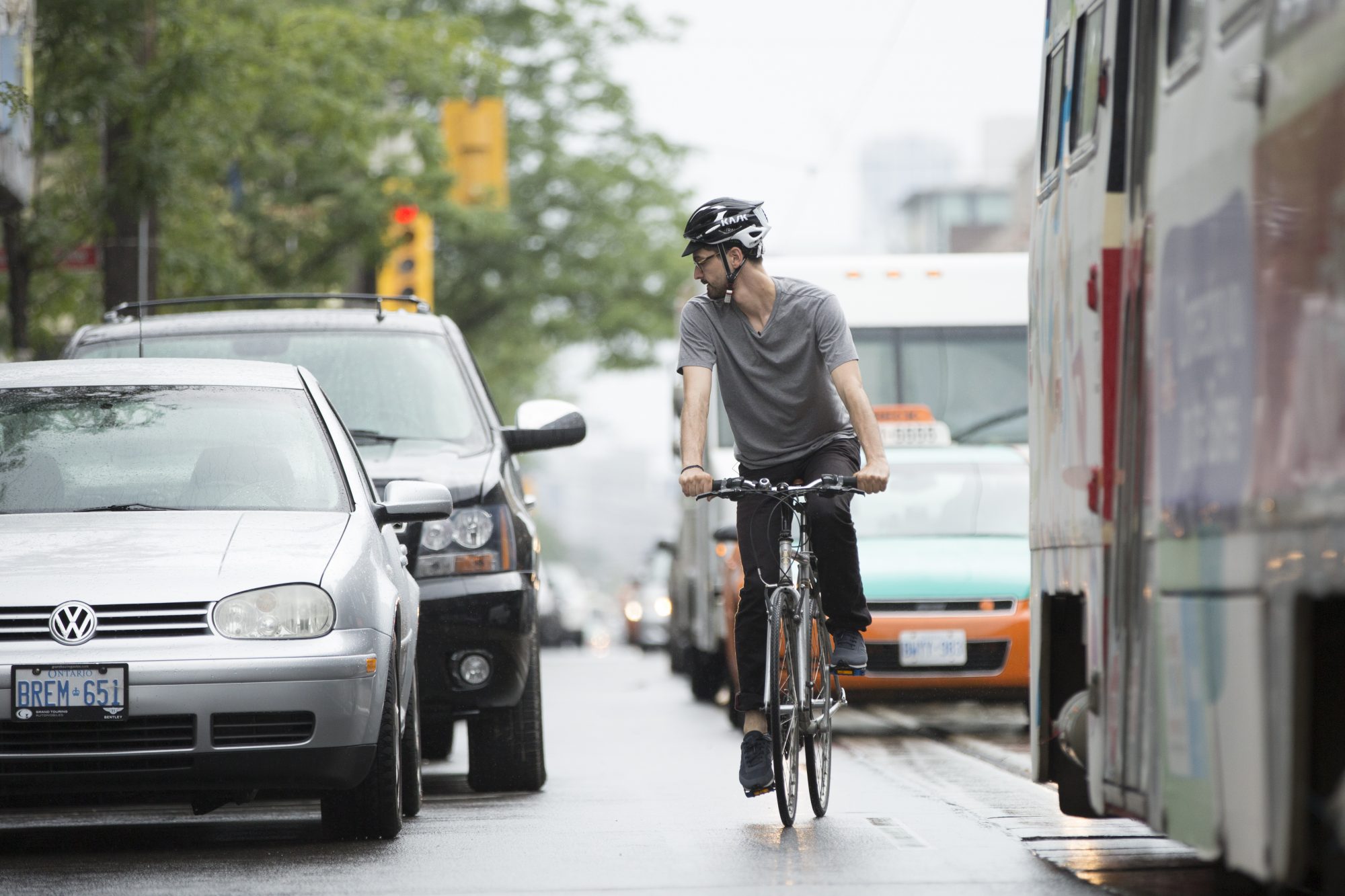 'Do cyclists have to have insurance?' - you asked Google and we've got the answer
'Do cyclists have to have insurance?' - you asked Google and we've got the answerHowever you start your question, Google has an autocomplete response for cyclists and insurance - but what's the answer?
By Michelle Arthurs-Brennan
-
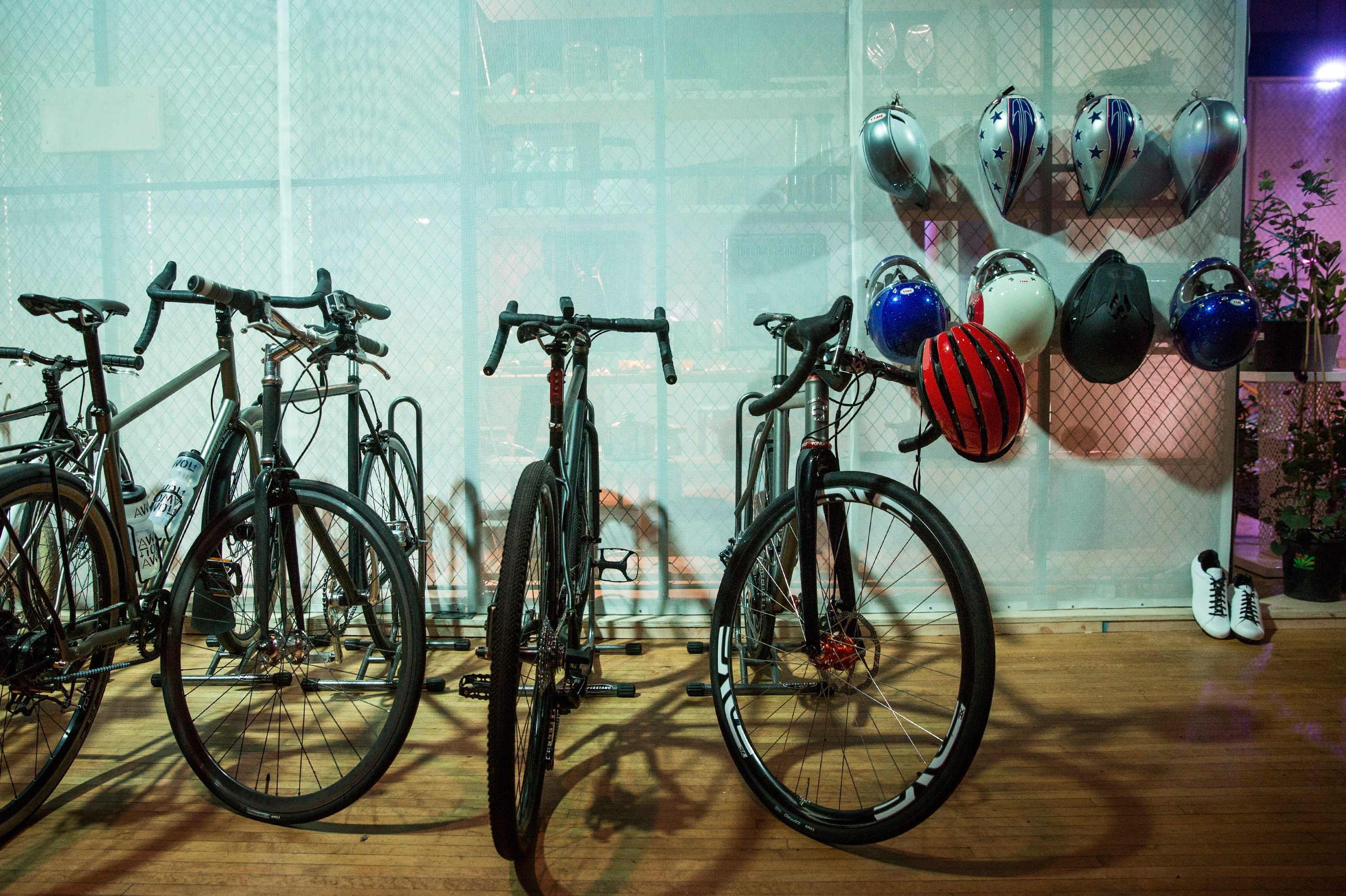 How many bikes does a cyclist need? – you asked Google and we’ve got the answer
How many bikes does a cyclist need? – you asked Google and we’ve got the answerS-1 becomes redundant in the event of a cycling obsessed partnership, so do we need an alternative to save us from ourselves?
By Michelle Arthurs-Brennan
-
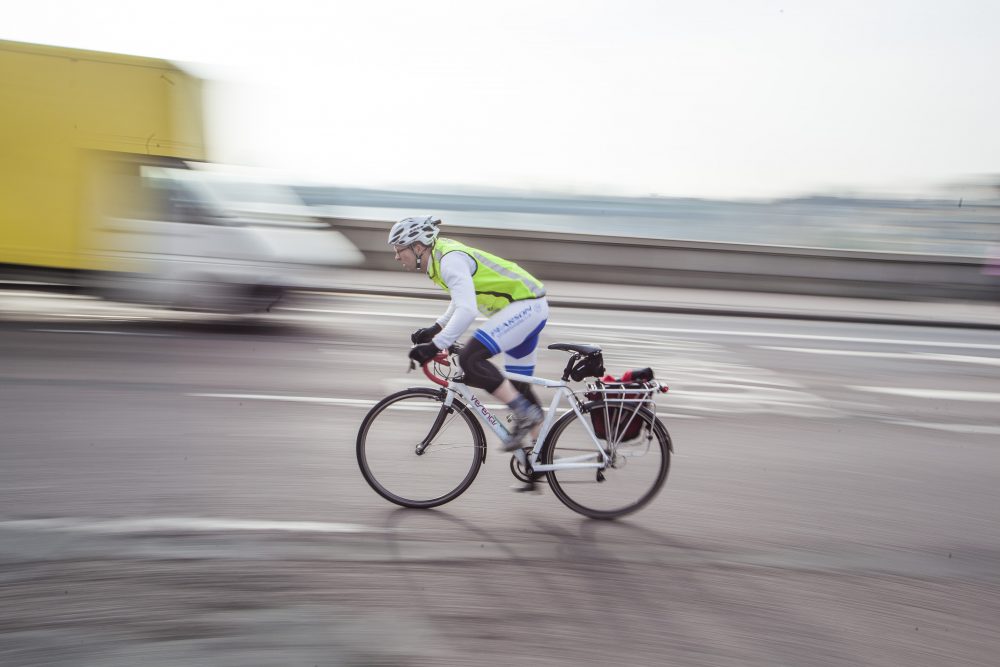 'Do cyclists have to ride on the road?' - you asked Google, and we’ve got the answer
'Do cyclists have to ride on the road?' - you asked Google, and we’ve got the answerGoogle autocomplete tells us this is one of the burning questions the world wants to ask - so we've brought the answers...
By Michelle Arthurs-Brennan
-
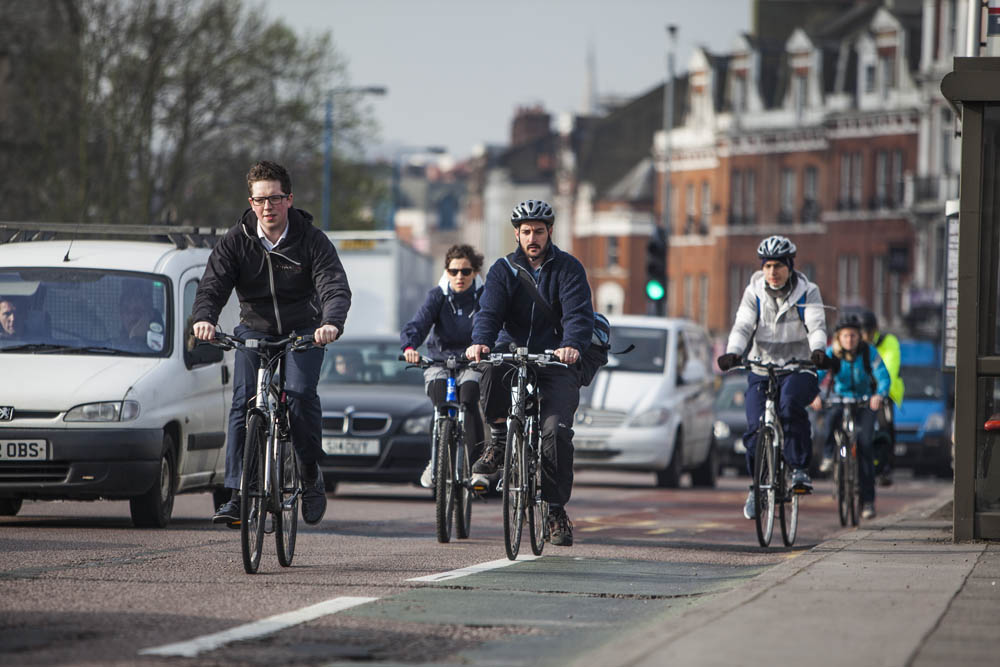 'Why do cyclists ride in the middle of the road?' - you asked Google, and we've got the answer
'Why do cyclists ride in the middle of the road?' - you asked Google, and we've got the answerCyclists ride in the middle of the road for a number of reasons, none of which involve annoying motorists, but all of which help to keep cyclists safe.
By Henry Robertshaw